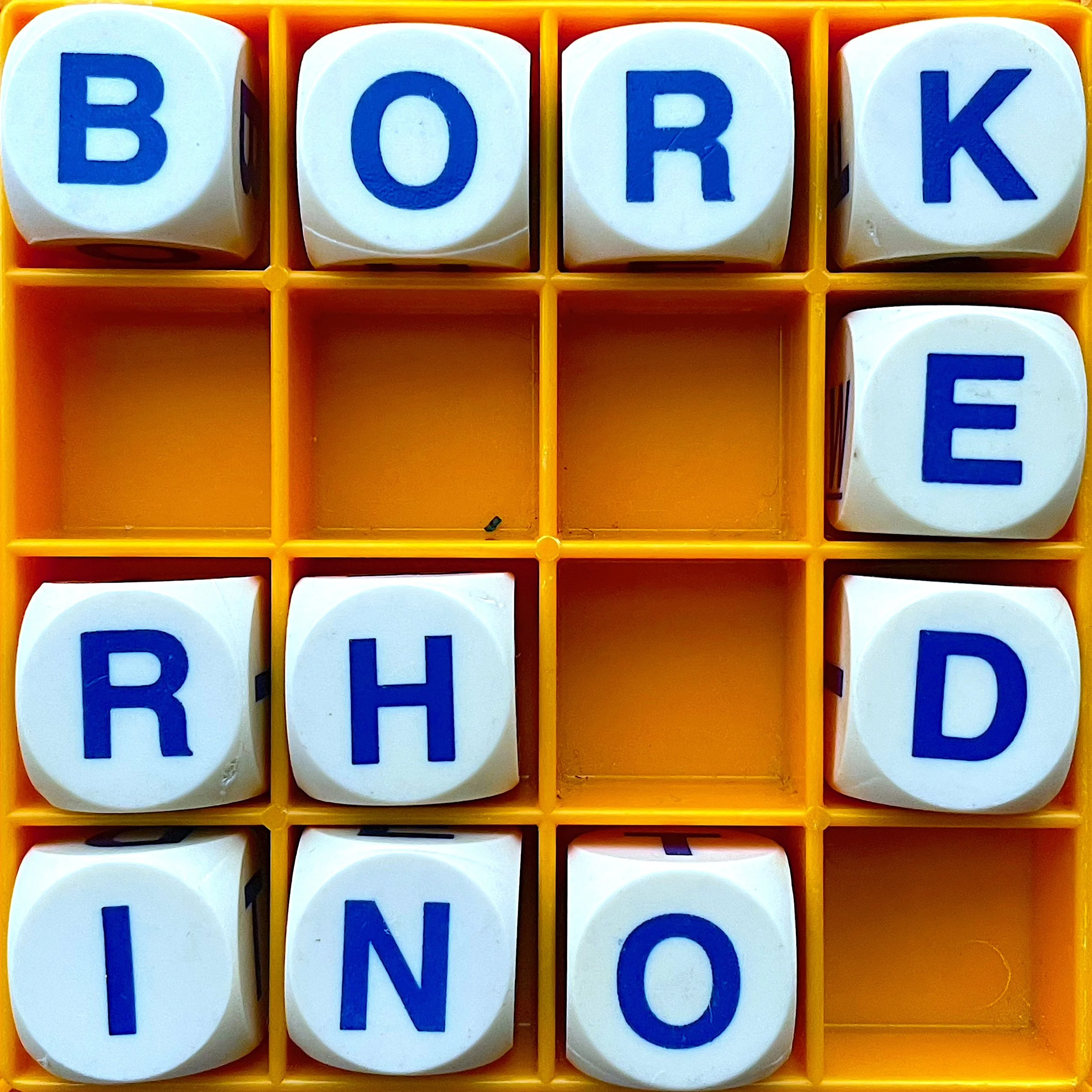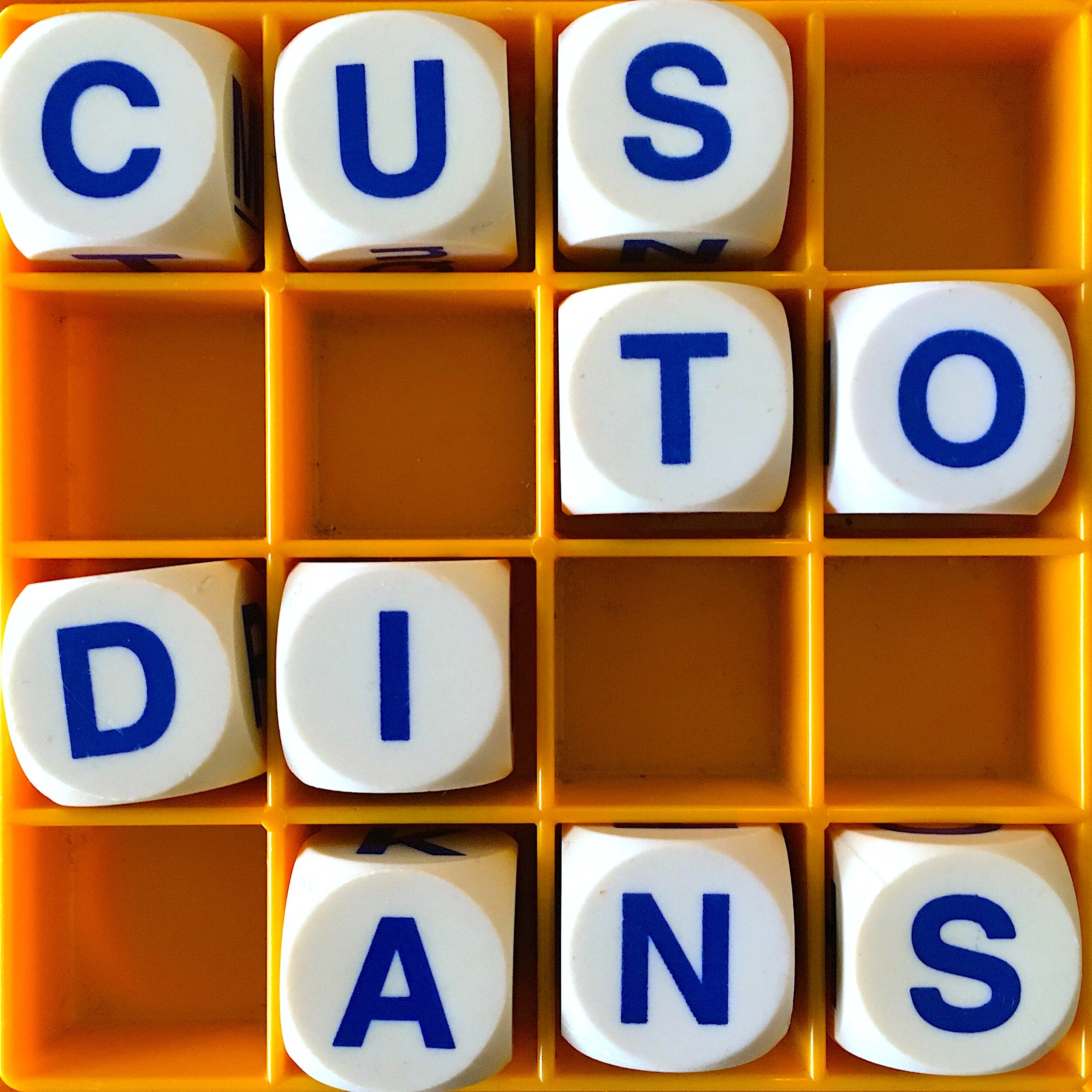BIBEK GURUNG: You grow up with the sense that if your first language, or one of your first languages, Singlish, actually a bad version of an already existing language, you kind of get this sense that “I'm just bad at language,” which is… language is a fundamental human skill. It's what separates us from the lemurs or whatever. And to just have this sense that you're bad at this very fundamental skill, I think, really does a number to your self esteem and your abilities to communicate in general. I still have a lot of - I don't know how to phrase it, maybe like cultural cringe - around Singlish. And when I meet someone from Singapore, we do sort of lapse into Singlish and communicate in that way, except if I'm with American friends and then I just feel so self conscious and I'm not able to do it. As a student of linguistics and someone who just knows about the sociolinguistic dynamics, I still find it really hard to shake.
Read moreAllusionist 163 Rhino Borked Guy transcript
"Better to elect a rhino than an ass.”
Read moreAllusionist 126 Survival: Custodians of the Languages transcript
RUDI BREMER: One aspect of of what happened in Australia, as far as colonisation, is the assimilation policy. And in broad strokes, the way that that worked was Aboriginal people were rounded up, and taken from their land and placed on missions. And from there you were forced to only speak English. You couldn't teach your children your language, you couldn't teach them your culture.
Read moreAllusionist 118 Survival: Bequest transcript
ELIZABETH KEREKERE: I'm so convinced that transphobia, biphobia, homophobia are such an integral part of colonisation, I reject that as a colonial construct, I reject it as racist.
As they took our land - tried to take all of our land, tried to take all of our language and suppress our culture, they also took our expressions of sexuality and gender. And that is important to us in a core part of our culture, especially because the way that the institutional racism, the intergenerational trauma that is the legacy of colonisation has impacted on us and the levels of discrimination against people with diverse genders, sexualities and sex characteristics, that we see that all of this, all of this was a massive attempt to cover up what was already there and pretend it never happened.
Allusionist 117 Many Ways At Once transcript
HARRY JOSEPHINE GILES: Our behaviour and our desires will always exceed any terminology that anyone can come up with. And so rather than trying to find the right terms - and this for me is like what working in, what trying to come up with an LGBT Scots glossary does: it's a chance to imagine. It's a chance not to come up with the right way of saying things, but to say: what if we thought about it this way? What if we thought about it that way? What assumptions are built into the languages that we use?
Read moreAllusionist 56+12. Joins & Pride - transcript
To celebrate Pride Month, I’m playing two of the Allusionist episodes that have stuck with me the most during the show’s existence.
Read moreAllusionist 81. Shark Week - transcript
HZ: There used to be a term ‘goatmilker’, it was a bird that was believed to suck milk from goats at night, but it was also slang for sex workers, and therefore slang for vulvas.
HRISHIKESH HIRWAY: Wow.
HZ: Licentious men were known as ‘goatmilkers’, because they were frequenting these sex workers in the 17th century when this word was around.
HRISHIKESH HIRWAY: Again, not enough poetry in that for me.
HZ: Too vulgar for you?
HRISHIKESH HIRWAY: Yes, for my delicate sensibilities.
Allusionist 79. Queer - transcript
AMY SUEYOSHI: I see 'queer' as an umbrella term, as a political call for revolution as well as unity across different groups of people.
JONATHAN VAN NESS: I think of it definitely with positive and loving energy around it, I don’t think of it as an insult at all; growing up, I would have thought of it more as an insult. I think it was in 2015 when we got marriage equality, and the media, especially the LGBTQ+ media, began to use it as an umbrella term, something we could all be part of. So I think I got the cue from media to know that it was a gorgeous amazing word, one where we’re taking the love back and it wasn’t one to be offended by any more.
KATIE MINGLE: I haven’t always loved the term for myself, because it feels like an umbrella term that you can use if you’re gay and in a relationship with someone of the same sex, or you can use if you’re a basically straight couple who occasionally has a threesome with someone. That’s what ‘queer’ has come to mean: anyone who’s not inside the norm.
AMY SUEYOSHI: I think it's rejecting things like patriarchy and heteronormativity, mandates of morality. So not just to be able to keep things gray or to be postmodern, post category, but instead rather to call for a true revolution of the way we see the world, the way we categorize the world. So it's not just about LGBT rights per se but it's about creating a world that's more respectful of equity and thinks about diversity as a plus and values different ideas as a side of radical change rather than fear.
KATIE HERZOG: I sort of hate it. It’s too broad.
TOBIN LOW: It's so useful. I mean especially as there is this proliferation of identities that people can call themselves and identify with and really claim, it's a great way of just sort of acknowledging that it's all in the umbrella and that it's all valid; it's just like a way of acknowledging the validity of all the things, which I think is great.
ERIC MARCUS: This word has tortured me.
Read moreAllusionist 77. Survival part 1: Second Home - transcript
It’s Friday night. I’m in a church hall in the small town of Gaiman in Argentina, about 1200km south of Buenos Aires, watching a concert in which locals are singing songs in Welsh. Three thoughts are rotating in my mind:
1. These people are REALLY good singers;
2. If I die here, people are going to think, “What on earth was she was doing in a church hall in a tiny town in rural Argentina?”
3. We are 12,000 km from Wales. The Welsh language is not widespread. Why are there people speaking Welsh in Argentina?









